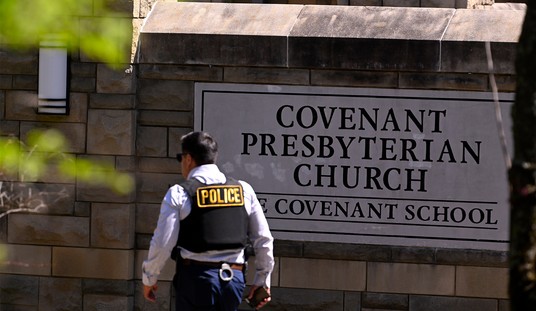The Chicago Teachers Union (CTU) has voted overwhelmingly to go on strike during the 2016 spring semester, with a walk-out tentatively scheduled for late March. This would be the second teachers strike in the Windy City over the past four years and would serve as a glaring reminder shame has been fully expunged from civil society.
According to The Washington Post, Chicago’s 27,000 public school teachers have a median salary of $71,017 and contribute—on the high end—only 2 percent of their salaries toward their very lavish pensions. They are the most highly compensated teachers in any major city in the country, and the average CTU salary is 51 percent higher than Chicago’s median household income, which is estimated at $46,877. Unfortunately, this will not stop CTU from crying poverty when they walk out of their classrooms in 2016.
The union claims Chicago Public Schools (CPS) is trying to cut teacher compensation by 12 percent over the next three years and take away $653 million in benefits. While CPS has already talked about laying off roughly 5,000 teachers early in 2016 due to a $1.1 billion (yes, that’s “billion” with a “b”) structural deficit, it argues meeting CTU’s demands would cost the city an additional $1.3 billion.
CTU’s demands include a 3 percent salary increase, pay for snow days, and smaller class sizes. Keep in mind the average class size in the district is only 26 students, but smaller class sizes would necessitate more teachers, which would conveniently mean more dues-paying members for CTU.
Recommended
While CTU fights to stop necessary reforms, the 400,000 children CTU members are ostensibly supposed to be preparing for college and the workforce—not to mention to live lives as fully-functioning, educated citizens—are languishing in terrible schools where they are not being taught much of anything.
Although Chicago’s 2015 scores on the National Assessment of Educational Progress (NAEP) tests, released in October, show some gains, they are still embarrassing. Only 30 percent of 4th graders and 25 percent of 8th graders tested as “proficient” in mathematics, and only 27 and 24 percent, respectively, were found to be proficient in reading. Going back to 2003, CPS has not produced an above-average NAEP score, relative to other large city school districts, in any subject. 2003’s kindergartners are 2015’s high school seniors. That is one whole generation of students that CPS and CTU have failed.
The
While PARCC tests leave a lot to be desired, and even assuming some implementation difficulties hurt scores, the results are absolutely abysmal.
One would think CTU teachers would be too ashamed to threaten to turn their backs on students and walk out of their classrooms over some snow-day pay, but it must be remembered this is a public-sector union; shame is not a part of CTU’s vocabulary.
Not only is CPS right to refuse to give in to CTU’s demands, CPS should go ahead with the planned layoffs. In a city where only a quarter of kids are reaching proficiency, there are a quite a few teachers in need of their walking papers. CPS should follow the example set by New York City, which closed over two dozen serially underperforming schools and saw a 15 percent increase in graduation rates from the students who were originally assigned to them.
Fewer than 5 percent of 52 CPS schools saw their students score as proficient on PARCC tests in 2014-15. The layoffs and closings should start there. Otherwise, another generation of children will likely be saddled with a dreadful education.


